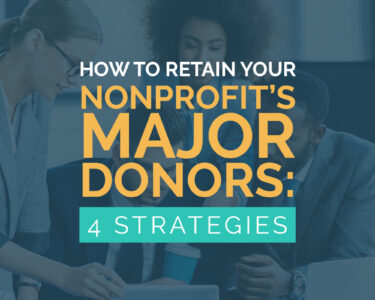
Whether you’re hosting large conferences or leading small Bible studies, your women’s ministry needs the right resources to fulfill its mission. Generous donors can power your important work, but prioritizing your mission may leave you feeling unequipped to plan and execute successful fundraising campaigns. How do you do both?
The world of fundraising is evolving with innovative tools to streamline every aspect of raising support. From improving volunteer management to developing a donation page, technology can help you fundraise more successfully and easily. Let’s explore the types of fundraising tools available to support your women’s ministry.
1. Your website
When developing your ministry’s tech toolkit, your first step should be looking at the platforms you already have. If your women’s ministry has its own website, you’re already leveraging a powerful tool for sharing information and resources such as meeting times, sign-up forms, recommended Christian books for women, and more.
There are two ways your website can garner support for your ministry. First, a donation page allows you to raise support from website visitors by making them aware of your fundraising needs and providing a way to give. Be sure to answer the following questions on the page:
- Why is your ministry raising money?
- How will donations be used?
- How can page visitors donate?
- In what other ways can visitors get involved?
Secondly, you can use your website to raise awareness about your ministry’s work and fundraising campaigns. For example, you can promote a fundraising event by creating a dedicated landing page on your website or talking about the event on your blog.
To increase the visibility of your website, share the link on your other channels, like your social media accounts. Your ministry may also be eligible for the Google Ad Grant, allowing you to use Google Ads to promote your website on the search engine results page (SERP) for free.
2. Prospect research tools
With a focus on outreach, your ministry may not know who to turn to when asking for donations. To raise support for your ministry beyond event registration fees or book sales, you’ll need to identify potential donors, get to know them on a personal level, and build strong relationships with them. Double the Donation defines this as prospect research, which can be made easier with the following tools:
- Data hygiene solutions:
You may have already collected data on previous donors, volunteers, or participants in your ministry. However, you’ll need to ensure this data is hygienic, or error-free, before using it to identify potential donors. Use data appending to add missing information and check for errors in your existing data.
- Charitable giving databases:
Knowing a potential donor’s email address or marital status won’t necessarily indicate their capacity to give—and that’s where charitable giving databases come in. These tools host philanthropic and wealth metrics so that organizations can learn more about a potential donor’s ability to contribute.
Learning about potential donors unlocks numerous other opportunities to raise support for your ministry, including personalized communications and targeted marketing strategies. For example, knowing that someone who participates in your ministry also volunteers with a local animal shelter might indicate their interest in studying God’s creations. If there’s a relevant study or conference related to that interest, share it with that donor!
Aside from reaching out with the right opportunities, this information can also help your fundraising efforts when you’re requesting donations to support your ministry. By identifying potential donors and understanding what motivates them to give, you’ll know how to ask for support—and how to get them more involved in your ministry!
3. Data management platforms
While prospect research tools help you collect data, you’ll need a data management platform to store and organize the information you gather. Choose a tool that allows you to easily migrate data from other sources. This way, you’ll be able to consolidate all your data from various sources into the same, reliable database.
For example, you may have an existing spreadsheet with information about registrants for a women’s conference in the past. Your data management platform should be able to easily import this information and combine it with new data from your prospect research.
As time goes on and your data collection grows, you’ll be able to use data from fundraising events and other campaigns to improve your efforts in the future. Information such as the responses to marketing materials or the amount of donations collected can be used to guide future fundraisers. This way, you’ll have a predetermined process for raising support and can remain focused on your top priority: your mission.
4. Volunteer tools
According to Esther Press’s list of Bible studies for women, cultivating relationships with fellow believers is a central part of women’s faith. Whether they work together to serve as volunteers or get to know each other through your ministry’s meetings and events, there are numerous ways you can encourage relationships.
Volunteer management software can help you manage volunteer roles for your fundraising campaigns and connect volunteers with each other through features such as:
- Automated emails to keep volunteers up-to-date on fundraiser details
- Volunteer data management, including availability and contact information
- Schedule creation tools to assign specific roles to each volunteer
The volunteer experience provides opportunities for women to work together to serve others. Using the right tools, you can create teams of volunteers, allowing them to get to know each other while working in roles that support their skill sets.
To select the right tools to raise support for your women’s ministry, make a list of the features that would apply to your ministry’s specific fundraising initiatives. For example, you may have a large volunteer team and need a platform to manage the volunteer experience. Once you’ve identified what you’re looking for, choose the tools that best fit your ministry’s needs and budget.
Remember, if you’re a women’s ministry leader, fundraising may not be your forte—and that’s okay! Fundraising tools are meant to streamline the process, making it easier for you to raise on behalf of your ministry without compromising the attention your mission requires.




